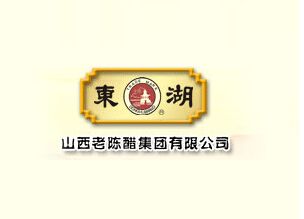
Company emblem of Shanxi Mature Vinegar Group [Photo/sxlcc.com]
Developing out of the Meiheju vinegar workshop in Shanxi province during the Ming Dynasty (1368-1644), the Shanxi Mature Vinegar Group (山西老陈醋集团) was developed in 1996.
In the early Ming Dynasty, vinegar operations in Shanxi began developing their own system. After years of development, the vinegar in Shanxi was fairly light in color and lacking in taste, with little aftertaste.
Later, Meiheju in Qingyuan county invented a fumigation method that produced a vinegar that was red in color and mellow and sour in taste. The vinegar was recommended to a prince who liked it. Afterwards, the producer sent artisans to the royal residence to make vinegar there, which was in turn presented to the imperial palace as tribute. The fumigation method then gradually spread among the vinegar workshops of Shanxi and during the early Qing Dynasty (1644-1911), and soon Meiheju reached its heyday as its business expanded across the country.
Shanxi Mature Vinegar Group is still using the traditional methods of vinegar-making inherited form Meiheju, with the best sorghum, barley and peas and the same five procedures – steaming, fermenting, smoking, filtering and drying in the sun – without any chemical catalysts. Through the use of wild fermentation, it retains the beneficial parts of the raw materials. And through natural fermentation, drying in the summer and removing ice in the winter, it eliminates impurities to create a quality, mature product.
The vinegar is known worldwide for its unique ability to regulate the vital energy flow and stop flatulence, soften blood vessels, and reduce triglyceride. It is exported to dozens of countries, including the United States, Japan, Australia and Thailand.
